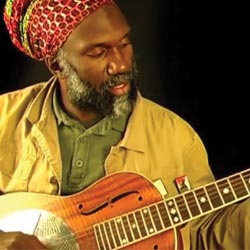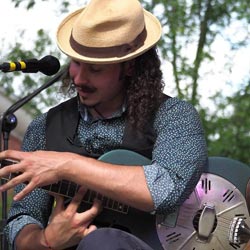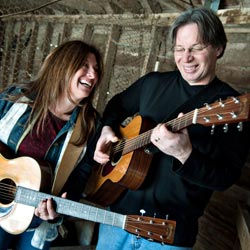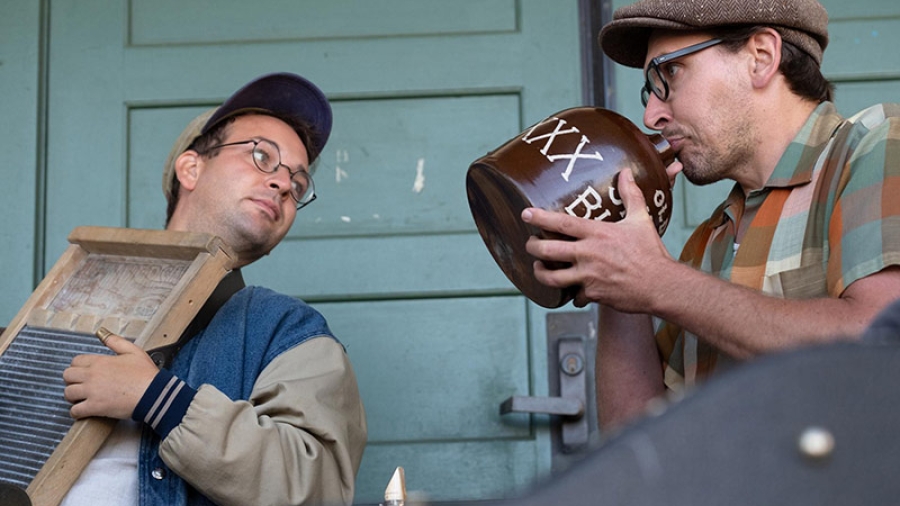
Early blues from the homes of tradition bearers to yours

Daily classroom instruction in traditional acoustic blues, its history, songs, and styles as well as technical skills and how to play well with others in the form. Afternoons include panel discussions on relative topics and evenings present faculty concerts celebrating various regional styles, both traditional and songs moving the genre forward.
AUGUST 3 – 8, 2021

FEATURING A FACULTY OF 28 BLUES GREATS

Albanie Falletta
Andrew Alli
Andy Cohen
Ben Hunter
Bruce Sunpie Barnes
Carl Sonny Leyland
Corey Harris
Del Rey
Ernie Vega
Hubby Jenkins
Josh White Jr.
Judy LaPrade
Junious Brickhouse
Lakota John
Lightnin’ Wells
Luke Anthony
Mark Brooks
Mark Puryear
Oscar Wilson
Phil Wiggins
Pink Anderson
Ricky Nye
Shari Kane and Dave Steele
Suzy Thompson
Briar Woods and Joe Seamons
Valerie and Ben Turner
And more to be confirmed..
 Artistic Director Jontavious Willis
Artistic Director Jontavious Willis
Jontavious grew up singing gospel music at the Mount Pilgrim Baptist Church with his grandfather. At the age of 14, he came across a YouTube video of Muddy Waters playing “Hoochie Coochie Man” and was hooked. That’s when he set his course on the blues. All types — Delta, Piedmont, Texas, gospel. As a fingerpicker, flat-picker and slide player. On guitar, harmonica, banjo and cigar box. And four years later he was playing on Taj Mahal’s stage.
“That’s my Wonderboy, the Wunderkind,” Taj Mahal said after inviting Jontavious to play on stage in 2015. “He’s a great new voice of the twenty-first century in the acoustic blues. I just love the way he plays.” Jontavious accepted invitation to lead the Port Townsend Acoustic Blues workshop as Artistic Director starting in 2020.
 Albanie Falletta
Albanie Falletta
In her formative years Albanie was exposed to the local music of Louisiana: the sounds of Cajun, zydeco, blues and gospel music at festivals and backyard parties. After relocating with her family to Texas at the age of nine, she began taking guitar lessons and developing an interest in acoustic-roots and electric blues, punk rock, and hair metal. Albanie began her love and study of early American jazz as a freshman in high school when she was exposed to the Parisian Romani guitarist Django Reinhardt. Listening fervently to recordings of Reinhardt, Louis Armstrong, Billie Holiday, Fats Waller, and other great figures, she began to develop her feel for swing. Soon she was performing alongside mentors and other players of the Austin scene. In the summer of 2013 Albanie relocated to New Orleans, Louisiana, where she currently lives and performs solo and with various ensembles.
 Andrew Ali
Andrew Ali
This Richmond, Virginia native was always passionate about music and stumbled upon the blues while taking up his first instrument; the harmonica. He instantly fell in love with the blues and the history that comes with the harp. Andrew developed his style of playing by studying from the harmonica greats including: Little Walter, Big Walter Horton, Sonny Boy Williamson II, and Junior Wells. Co-founding “Andrew Alli and Last Night’s Blues Band”, with drummer, Charles Hibbler in 2012, the band had a particular interest in the Chicago and Delta styles of blues. Andrew also has had the privilege to tour with folk musicians Tim Barry and Josh Small during a US, European, and Australian music tour. The Richmond Folk Festival has featured Andrew for 3 years teaching harmonica lessons and performing.
 Ben Hunter
Ben Hunter
Ben Hunter is a multi-instrumentalist whose interests lie in roots music from around the world. Born in Lesotho, raised predominantly in Phoenix, with stints in Seattle and Zimbabwe, Ben was “raised classically” on violin, but now plays a variety of styles—roots, folk, jazz, blues, world, gospel, you name it. At Whitman College, Ben came upon two violinists who influenced him most: Stuff Smith and Eddie South. Like Ben, Eddie South was an African American classical violinist who made the transition over to jazz and blues styles. Stuff Smith’s phrasings and technical dexterity impressed him. String band violinist, Clifford Hayes, helped him understand how violinists play the blues in a different way. Ben plays in the internationally touring duo, Ben Hunter & Joe Seamons, as well as solo and with other local Seattle jazz groups. In 2017, Ben composed music for a dance piece, Black Bois, that has received critical acclaim, and is currently an artist-in-residence for Seattle’s On The Boards theater group.
 Carl Sonny Leyland
Carl Sonny Leyland
Raised on the South Coast of England, as a child Carl was drawn to American music on LP records his father would play. He developed an appreciation for Dixieland jazz, the rock n roll of the 1950s and the country music of Jimmie Rodgers and Hank Williams. At 15 Carl discovered boogie-woogie. Captivated by the sound of the repeating 8 to the bar left hand pattern, he was inspired to begin on a path that would become his life’s purpose. Within 3 months he became a member of a respected local group “The Bob Pearce Blues Band.” In 1988 Carl’s initial visit to New Orleans inspired him to relocate to that city where he spent the next nine years. Active on the club scene, Carl quickly gained a reputation for his authentic blues and early rock n roll stylings. In 1997, he moved to Southern California and joined Big Sandy and His Flyrite Boys and toured for over three years. His repertoire had expanded to include ragtime and early jazz styles and became part of the traditional jazz scene around Los Angeles and San Diego. In June of 2003 the Carl Sonny Leyland Trio was formed. Whether playing solo or with his trio, Carl’s playing displays an infectious spontaneity, providing plenty of surprises for the listener.
 Chaz Leary
Chaz Leary
“Washboard Chaz” talents extend from washboard, congas and other hand-percussion, lead and background vocals, to songwriting. Chaz has also developed a strong program of percussion workshops both for adults and for children. He has shared the stage with Bonnie Raitt, John Hammond, Taj Mahal, Anders Osborne and Corey Harris among others. He has opened for many blues greats, including Muddy Waters, Robert Cray, Doc Watson and Keb Mo. Chaz’s musical talents have been featured on over 100 recordings, including John Hammond’s 1998 Grammy nominated “Long as I have You”. He has played festivals and clubs from coast to coast, as well as International tours with his band ‘Bleecker Street’. His Blues Trio ‘Tin Men’ have performed in Japan and all over Europe. Chaz is also a featured performer in the wildly popular Playing for Change, appearing in videos with Keith Richards, Keb Mo and members of the Grateful Dead, among others.
 Corey Harris
Corey Harris
Guitarist, powerful vocalist, songwriter and band leader who has carved out his own niche in blues, Corey has appeared at venues throughout the North America, Europe, Brazil, The Caribbean, West Africa, Asia, Australia and New Zealand. Corey began his career as a New Orleans street singer, travelling throughout the southern U.S. In his early twenties he lived in Cameroon, West Africa for a year, which had a profound effect on his later work. He has recorded many old songs of the blues tradition while also creating an original vision of the blues by adding influences from reggae, soul, rock and West African music. His 1995 recording, Between Midnight and Day, is a tribute to the tradition of acoustic blues. Subsequent recordings, such as Greens from the Garden (1999), Mississippi to Mali (2003), and Daily Bread (2005) show Harris’ maturation from interpreter to songwriter. Some of his imaginative compositions are marked by a deliberate eclecticism; other works stay true to the traditional blues formula of compelling vocals and down-home guitar. With one foot in tradition and the other in contemporary experimentation, Harris is a truly unique voice in contemporary music.
 Del Rey
Del Rey
Del Rey started playing guitar when she was four. At the age of thirteen she was introduced to the world of traditional acoustic music. She stumbled into a concert at Folk Arts Rare Records in San Diego and about 20 people were sitting on the floor under the record bins listening to a kid named Tom Waits play his original songs. Lou Curtiss, proprietor of Folk Arts and artistic director of the San Diego Folk Festival suggested she quit wasting time playing “Stairway to Heaven” and listen to some Memphis Minnie. He put her on stage with Sam Chatmon when she was fourteen and introduced her to Lydia Mendoza and Howard Armstrong. Lou gave her recordings that still influence everything she does on solo acoustic guitar. She soaked up country blues, stride piano, classic jazz and hillbilly boogie. It was a musical education hanging around the record shop. Thirty years later, she became fascinated with the ukulele. She tried to play the same kind of complicated rhythmic blues and ragtime on four strings as on six. She expects a lot out of the little instrument.
 Ernie Vega
Ernie Vega
A staple of the New York folk scene, Ernie combines a fabulous soulful voice, matched with fast picking guitar, and imaginative song writing. The string master performs stark versions of Country Blues, Gospel-Blues, Old-Time, & Jazz classics (as well as original compositions) that are stripped down to their barest elements. Sounding like ghosts from a by-gone era, Ernie illustrates the simple elegant power of these great songs. He performs and teaches his broad repertoire of songs at the fabulous Jalopy Theater in New York, a venue fast becoming Brooklyn’s center of Folk, Roots and the Art of the Jug. Ernie Vega transports you to a time when the Village was still Bohemian and old-time music was all there was.
 Hubby Jenkins
Hubby Jenkins
Hubby is a talented multi-instrumentalist who endeavors to share his love and knowledge of old-time American music. Born and raised in Brooklyn he delved into his Southern roots, following the thread of African American history that wove itself through country blues, ragtime, fiddle and banjo, and traditional jazz. Hubby got his higher musical education started as a busker. He developed his guitar and vocal craft on the sidewalks and subway platforms of New York City, performing material by those venerable artists whose work he was quickly absorbing. An ambitiously itinerant musician, he took his show on the road, playing the streets, coffee shops, bars, and house parties of cities around the U.S. After years of busking around the country and making a name for himself, Hubby became acquainted with the Carolina Chocolate Drops. He was an integral part of the Grammy award winning Carolina Chocolate Drops (2010 – 2016), as well as a member of Rhiannon Giddens band. Today he spreads his knowledge and love of old-time American music and history through his dynamic solo performances.
 Joe Seamons
Joe Seamons
Joe along with Ben Hunter, is a songster revivalist who performs acoustic blues, field hollers, fiddle and banjo breakdowns, and early jazz to the delight of audiences in concerts and workshops nationwide. For seven years, their tours have extended their work as teachers and community organizers in their homes near Seattle, Washington. With their unique integration of performance, education and modern-day folklore, the duo redefines the role of a songster in the 21st century. In 2016, they earned 1st place in the International Blues Challenge’s solo/duo category but rather than think of their music as blues, it’s best to situate Ben and Joe as American songsters. A songster traditionally refers to an artist whose repertoire is much broader than the old blues, and spans many of the genres they inhabit. Uncle Dave Macon, Robert Johnson, and Charlie Patton are classic examples of songsters – a music that hews to the rough-and-tumble collisions of musical inspirations from the early 20th century; music that paved the way for everything we enjoy today.
 Josh White Jr.
Josh White Jr.
Folksinger and actor Josh White Jr. proudly upheld the musical tradition begun by his father, the legendary bluesman and social activist Josh White. Josh Jr. made his performing debut at the age of four, appearing alongside his dad at the Big Apple nightclub Cafe Society; for close to two decades, father and son regularly shared the stage, frequently co-starring together on Broadway as well for 1949’s “How Long Til Summer?”, the younger White even earned a special Tony Award as Best Child Actor. He made his solo debut in 1956 with the Decca release “See Saw,” co-written by Marvin Hamlisch (White’s classmate at the Professional Children’s School along with Elliott Gould, Sandra Dee, Leslie Uggams, and Christopher Walken); as the folk revival blossomed, he increasingly turned his energies from acting to music, mounting a full-fledged solo career with the minor 1962 hit “Do You Close Your Eyes.”
 Judy LaPrade
Judy LaPrade
Judy grew up in West Virginia where she played and sang in church. By junior high school she led and accompanied the patient choir at the local state mental hospital, then as an adult took the Blues into schools and music therapy groups for people with developmental challenges. These experiences set a path to build bridges between therapy and the creative arts, and she’s been teaching both ever since. She also played, sang, and wrote music for several years with the Elktones, an eight-piece band of wild and wonderful West Virginia women. Judy began standard classical piano lessons at a young age with a strong ear. She longed to put printed music aside and play with other people but didn’t know how. When a friend steered her to Blues camp in 1985, she felt she’d come home. She fell in love with traditional acoustic Blues and early string band music. She’s taught Beginning Blues Piano for many years to people both new to piano and current players who want to learn Blues on piano.
 Junious Brickhouse
Junious Brickhouse
Junious is an internationally established educator, choreographer and cultural preservationist with over 30 years of experience in Urban Dance Culture. Born in Virginia Beach, VA, his dance training began at family gatherings dancing the funk styles of the era. A citizen folklorist, Junious also conducts independent research into those cultural traditions whose influence is reflected in urban dance culture. From ring shouts and acoustic county blues to Hip Hop, understanding the nature and meaning of these art forms and their influences, is what motivates this artist. As the Founding Executive Director of Urban Artistry Inc. (www.urbanartistry.org), Junious has inspired and created a movement of artists dedicated to the preservation of urban dance culture, specifically within communities of practice. As Urban Artistry’s Executive Director, Junious produces projects such as The International Soul Society Festival, The Preservatory and the UA Digital Archives to encourage other artists to research and document tradition bearers and their contributions.
 Lakota John
Lakota John
Lakota John is an old soul with a love for the blues. “Pembroke’s Lakota John Locklear is a prodigious blues guitarist of Lumbee and Lakota lineage–Indy Week”. From Robeson County, North Carolina and born in 1997, John Lakota Locklear is no stranger to music. He grew up listening to his dad’s music library and at 6 years old, he picked up one of his Dad’s old harmonicas and at age 7, his first guitar. This lefty learned to play guitar in standard tuning and was intrigued by the sound of the slide guitar. At age 10, he bought himself a glass slide, placed it on his pinky finger and he has been sliding over the frets ever since. Lakota John started performing in 2009 and is a 2015 NAMA Nominee (Native American Music Awards) and has opened up for and shared the stage with Native American Blues Artist, Pura Fe; Blues icon, Taj Mahal; Native blues rocker, Keith Secola; Scott Ainslie, Blues Historian and Musician; Cary Morin, Native American Blues Guitarist and mentor; the Jeff Sipe Trio; Legendary Bluesman Mr. John Dee Holeman and the South Carolina “Blues Doctor” Mr. Drink Small. Lakota John continues to learn alongside the elder bluesmasters, carrying on the traditional sounds of the acoustic Piedmont to the electric blues guitar styles and preserving his heritage with songs from the Native American flute. Some of his musical influences include Blind Boy Fuller, Reverend Gary Davis, Duane Allman, Johnny Winter, Robert Johnson, Taj Mahal, Jimi Hendrix, Derek Trucks, Jesse Fuller and many-many more.
Lightnin Wells
Mike “Lightnin” Wells breathes new life into the vintage tunes of the 1920s and depression era America employing various appropriate stringed instruments in a dynamic style which he has developed in over thirty years of performing. Raised in eastern North Carolina, Wells learned to play harmonica as a young child and taught himself to play the guitar as he developed a strong interest in traditional blues and folk music. He has presented his brand of acoustic blues throughout North Carolina, the United States and Europe. Lightnin’ remains an insatiable student and researcher, studying the various forms of American roots music from bygone eras. His musical style is personal and energetic yet remains true to the original root form. His goal is to entertain and educate using a variety of sources, influences and techniques to express his dedication, respect and pleasure in presenting this unique American art form.
 Little Pink Anderson
Little Pink Anderson
Mentored by his father Pink Anderson, Alvin “Little Pink” Anderson is known for his authentic performing of his father’s style of blues. Anderson committed himself to a full-time music career in the 1990s, recording albums that cover his father’s work. At an early age, Little Pink was encouraged by his father, who constructed him a miniature guitar, to perform his particular style of blues. “My father was a bigger influence on me than I realized for forty-something years,” said Little Pink. Father and son began performing together on the medicine show circuit, and at 13 years-old, Little Pink joined Clarence Carter’s band on tour but was forced to leave when Carter discovered how young he was. In the early 1970s, Little Pink made a name for himself as an electric and acoustic guitar player on the local blues scene. Little Pink focused more on acoustic guitar, although he was still highly regarded as an amplified guitarist, often performing his father’s repertoire at festivals with harmonica player Freddie Vanderford. The pair documented this phase of his career with a privately distributed cassette tape. He released two further albums on labels, Carolina Bluesman and Sittin’ Here Singing the Blues.
 Luke Anthony
Luke Anthony
Luke Anthony is a fresh new face in the American harmonica community who learned how to play his instrument from the very staff which he will now be working alongside. He began in 2013 as a blues player and has now branched out into a multitude of styles. His classes at the Port Townsend Acoustic Blues workshop will be tailored to the youth of Centrum as a youth himself. Luke will be demonstrating basic beginner harmonica techniques such as, how to play a single note, how to get a rich full tone, and rhythmic sensibility. As Luke has been a student of Centrum’s very own Phil Wiggins for years, much of these classes will be focusing on things he’s learned from Phil: strengthening the student’s ear and their ability to learn melodies based on the call and response techniques used for centuries and other ways of turning the world’s best harmonica pioneers into Masters.
 Mark Brooks
Mark Brooks
Mark is one of New Orleans premiere bassists. He is noted for his versatility vocally as well as instrumentally. Mark is a protégée of the late great Jazz Master, Alvin Batiste along with several of his close friends, Branford Marsalis, Donald Harrison and Henry Butler. Mark has toured and played with an array of artist ranging from Jazz, Blues, R&B, to Gospel, such as, Dr. John, The Neville Brothers, Henry Butler, Charles and Aaron Neville, Lou Rawls, The Preservation Hall Jazz Band and Fats Domino Band. Mark has to his credit numerous recordings and appearances on local and national television shows, but his most highlighted musical moments were the opportunities to appear on screen and sound track of Clint Eastwood Film the Bridges of Madison County, The Regis and Kathy Lee show and his appearance in the movie Ray Charles life story “Ray”. Mark has also to his credits two episodes in the HBO Special “Treme” and the trailer and several episodes in the TNT special “Memphis Beats”, the movie “Bolden”, the PBS special ”River of Songs” and recently an episode in “The American Horror Story”. Mark exemplifies both team and leadership skills which keep him in popular demand. You can be sure there are more exciting musical credits to come.
 Mark Puryear
Mark Puryear
Mark is an ethnomusicologist, Grammy nominee, and has served as a curator with the Smithsonian Center for Folklife and Cultural Heritage. He curated the Freedom Sounds: A Community Celebration, the public celebration commemorating the grand opening of the Smithsonian National Museum of African American History Culture in 2016. From 1996 – 2006, he managed the NEA National Heritage Fellowships. Puryear’s involvement in public sector folk and traditional arts spans more three decades. His professional accomplishments include researching, documenting, and programing, producing and performing traditional and contemporary arts nationally and internationally. Puryear holds an MA in ethnomusicology from the University of Maryland, he has taught and at the University of Maryland, Bowie State University, Montgomery College, and lectured at Howard University. Puryear’s performance experiences include Smithsonian Folklife Festivals, the Montpelier Cultural Arts Center, D.C. Blues Society Festival, Port Townsend Acoustic Blues Festival, The Library of Congress, clubs, college campuses, and private events. Puryear has performed with blues artists such as Phil Wiggins, Gaye Adegbalola, Nat Reese, Jay Summerour, Warner Williams, Daryl Davis and many others.
 Phil Wiggins
Phil Wiggins
Phil is a versatile traditional harmonica player, continuing the Piedmont blues tradition, a gentle and melodic blues style of the mid-Atlantic region. He plays the diatonic ten-hole harmonica in the country blues style, cupping both hands around the instrument and playing acoustically. His sound is not shaped by the gear, the microphone or amplifier when performing on stage, instead by his complex syncopated patterns, breath-control and rhythm, stylistic virtuosity and fiery solo runs. As a teenager living in Washington D.C. in the 1970s, he played at the Smithsonian National Folklife Festival with street singer Flora Molton, sitting in with blues greats Johnny Shines, Sunnyland Slim, Sam Chatmon, Robert Belfour and Howard Armstrong. By the time he graduated from high school in 1973, D.C. blues elders John Jackson, John Cephas and Archie Edwards had embraced him. He joined the Barrelhouse Rockers, a band fronted by pianist and singer Wilbert “Big Chief” Ellis, where John Cephas played guitar. They toured regionally until Ellis retired in 1977, when John Cephas invited him to join in the duo ‘Cephas & Wiggins’. Phil Wiggins has taught thousands of burgeoning harmonica players and actively continues to teach and lead as artistic director in workshops, such as at the Augusta Heritage Center of Davis & Elkins College in West Virginia and the Port Townsend Acoustic Blues Workshop in Washington State. Plus, he continues to play an active role on the board of the National Council for Traditional Arts.
 Bruce Sunpie Barnes
Bruce Sunpie Barnes
Sunpie is a veteran musician, park ranger, actor, former high school biology teacher, former college football All-American, and former NFL player (Kansas City Chiefs). Sunpie Barnes’ career has taken him far and wide, and he has traveled to over 35 countries playing his own style of blues, zydeco and Afro-Louisiana music incorporating Caribbean and African influenced rhythms and melodies. He is a multi-instrumentalist playing piano, percussion, harmonica, and he learned to play accordion from some of the best, including Fernest Arceneaux, John Delafose, and Clayton Sampy. With his musical group Sunpie and the Louisiana Sunspots, he has played festivals and concerts across New Orleans and the US, as well as internationally, and they have recorded 5 critically acclaimed CDs. Sunpie is deeply involved in New Orleans parade culture and takes his music to the streets. He is Second Chief of the North Side Skull and Bone Gang, one of the oldest existing carnival groups in New Orleans, and a member of the Black Men of Labor Social Aid and Pleasure Club.
 Suzy Thompson
Suzy Thompson
Suzy Thompson is one of the rare musicians today who has mastered multiple styles of Southern fiddling, from prewar acoustic blues to Cajun and Creole to old-time fiddle, especially the kind that has a ragtime or blues feel. A powerful blues singer in the styles of Memphis Minnie and Bessie Smith, and a highly respected blues fingerpicking guitarist, Suzy is unique in her ability to combine fiddle, vocals and guitar in the blues, oldtime country and ragtime idioms.
Suzy discovered the music of Bessie Smith, Sippie Wallace, Memphis Minnie, Victoria Spivey, and other classic blues moaners in the winter of 1975, when a friend of a friend of a friend stored his LP collection in her room. She began learning and performing some of this early blues material, accompanying herself on the guitar. The next year, she formed the Any Old Time String Band, an all-woman quintet with a repertoire that included classic blues, oldtime country music, and Cajun music.
Suzy’s vast repertoire of quirky old-time country tunes and songs was learned from rare field recordings and old 78s, and she is particularly adept at the ragtime and blues-influenced playing of hillbilly musicians of the 1920’s and 30’s, such as the East Texas Serenaders, Fiddlin’ Arthur Smith, Doc Roberts, and others of that ilk. Suzy’s passion for old-time music caused her to start the Berkeley Old Time Music Convention , which has become a five-day celebration attended by oldtime musicians who travel from all over the U.S. to join in the fun!
 Briar
Briar
Briar is a singer of vintage jazz, blues and original music. By blending a powerful voice with stories about the history and origins of her music, she shines a light on singers and tales that have been forgotten by the country that created them. Raised in the small community of Chimacum, Washington, Briar uses her music to help explore her unique background as a black woman from the rural Pacific Northwest. Whether belting Bessie Smith numbers or crooning original songs about Sherlock Holmes, her performances are defined by her combination of grace and playfulness, elegance crossed with down-home bravado. In addition to her regular engagements as a singer and ukulele player, Briar teaches music for Seattle JazzEd, is a leader of the Rhapsody Project, and is currently pursuing a degree in horticultural science from Olympic University.
 Valerie Turner
Valerie Turner
Valerie is a native New Yorker with southern roots in Virginia and Georgia. She plays finger style Country Blues guitar and specializes in the Piedmont style of fingerpicking. She has taught at the Port Townsend Acoustic Blues Workshop, Blues & Swing Week, and at Blues in the Gorge. A 2018 inductee into the New York Blues Hall of Fame, Valerie is also the author of Piedmont Style Country Blues Guitar Basics, an independently published book. Her eclectic repertoire was heavily influenced by the late John Cephas, a world-renowned Country Blues musician in the Piedmont style, and her guitar playing is reminiscent of traditional blues greats like Mississippi John Hurt, Etta Baker, and Elizabeth Cotten. Valerie and her husband Ben perform as the Piedmont Blūz Acoustic Duo and, in addition to a host of domestic venues and festivals, the duo have traveled as far as Europe and the Middle East to share their music.
 Shari Kane and Dave Steele
Shari Kane and Dave Steele
Shari and Dave first met in the summer of 1991, crossing paths as performing blues musicians: Shari was the partner of harmonica legend, Madcat Ruth, (Madcat & Kane), while Dave was leading the electric blues band, Big Dave and the Ultrasonics. A happy marriage, thousands of miles of touring, and more than twenty-five years later, they are loving life on the road together.
Shari started playing guitar at the age of five. By the early 1970’s she had become a devoted blues fan and learned how to play fingerstyle blues on the acoustic guitar. When she was sixteen, she began teaching guitar. She continues to teach, offering workshops in many of the cities where she performs. Shari’s many years spent studying the work of the Delta Blues masters can be heard nightly as she picks up her acoustic guitar. Throwing herself into a stinging Robert Johnson interpretation, a jumping Robert Junior Lockwood shuffle, or the intricate finger stylings of Reverend Gary Davis and Mississippi John Hurt, Shari’s mastery of the acoustic tradition is apparent.
Dave first began performing as a barroom acoustic solo guitarist and singer while attending Allegheny College in Northwest Pennsylvania in the 1970’s. During the 80’s, Steele expanded his interest to electric blues, as a founding member of the Zipper City Blues Band. After seven years as a popular regional act, Steele moved to Ann Arbor, Michigan where he formed and led the popular blues band Big Dave and the Ultrasonics.
 Ricky Nye
Ricky Nye
Ricky Nye was born in Cincinnati in 1956, and was bitten by the music bug at the age of five. Ricky began his performing career at age twelve with his family’s band, and upon his return to the area in 1979, his musical journeys on piano, organ & accordion have taken him through jazz (with internationally acclaimed guitarist Wilbert Longmire), funk, rock & roll (years 1979-1985 with legendary cult faves The Raisins), country, zydeco, New Orleans styles, boogie woogie & blues- knowledge which has landed him on countless recording sessions and as accompanist to renown blues artists.
In his twenties and thirties, Ricky established working relationships and friendships with Cincinnati blues icons such as Big Ed Thompson, H-Bomb Ferguson and fellow pianists Big Joe Duskin and Pigmeat Jarrett.


